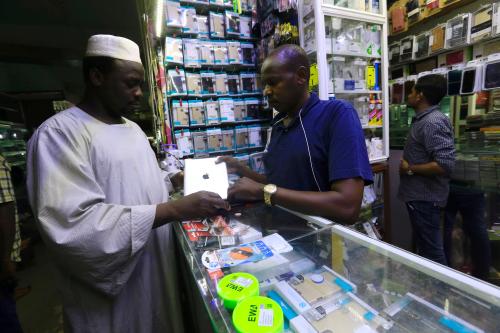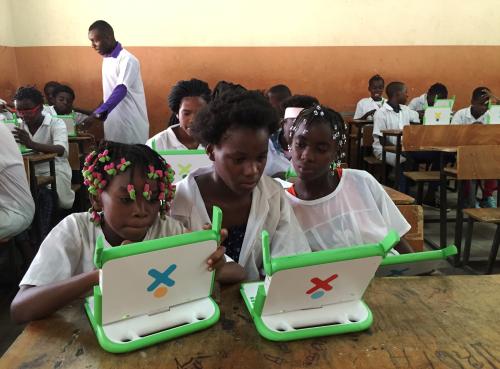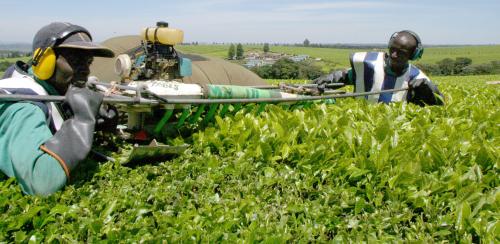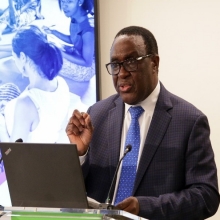Below is a viewpoint from Chapter 5 of the Foresight Africa 2018 report, which explores six overarching themes that provide opportunities for Africa to overcome its obstacles and spur inclusive growth. Read the full chapter on African technology, innovation, and digital potential here.
Agriculture is critical to some of Africa’s biggest development goals. The sector is an engine of job creation: Farming alone currently accounts for about 60 percent of total employment in sub-Saharan Africa, while the share of jobs across the food system is potentially much larger. In Ethiopia, Malawi, Mozambique, Tanzania, Uganda, and Zambia, the food system is projected to add more jobs than the rest of the economy between 2010 and 2025. Agriculture is also a driver of inclusive and sustainable growth, and the foundation of a food system that provides nutritious, safe, and affordable food.
At the same time, Africa’s agriculture sector is facing mounting challenges.
While agricultural productivity in Africa has picked up in recent years, it still lags behind other regions, and currently one in four people in sub-Saharan Africa is chronically undernourished. In the coming decades, Africa’s food system will be further strained by a population that is projected to rise by 1.3 billion by 2050. And the food security challenge will only grow as climate change intensifies, threatening crop and livestock production. If no adaptation occurs, production of maize—which is one of Africa’s staple crops—could decline by up to 40 percent by 2050. Expanding the land that is under cultivation has boosted African agricultural production in the past, but it has come at an environmental cost. Moving forward, the focus must be on intensifying production on agricultural land sustainably without harming the environment.
Clearly, business-as-usual farming is not the right way forward.
If no adaptation occurs, production of maize—which is one of Africa’s staple crops—could decline by up to 40 percent by 2050.
Whether it’s satellites that provide accurate climate data, Internet of Things devices like smart phones, or cutting-edge
innovations like blockchain, technology could be a game-changer in boosting agricultural productivity and resilience in a sustainable way. The World Bank is incorporating precision technology into its agriculture projects around the world. We’re exploring Internet of Things-enabled smart irrigation devices that combine automated soil water sensors and cloud-based data analytics. These devices can boost crop yields while cutting water use. In Kenya, the World Bank is deploying big data from remote sensing and GIS-enabled technologies to support the implementation of agro-weather analytics that enable accurate weather monitoring. This data will enable small holders to know how and when to apply inputs for optimal results.
All over the African continent, startups and other institutions are leveraging technology in transformative ways.
In Nigeria and Kenya, Hello Tractor is reversing the trend of low mechanization by allowing farmers to hire affordable tractors to work their land, all through their mobile phones. The start-up, which has served 22,500 farmers to date, reports a 200 percent increase in customers’ yields. Solar refrigerators are helping dairy farmers in Kenya cool their milk products and reduce spoilage. About 1.2 million farmers in Ethiopia, Ghana, Malawi, and Niger are learning best farming practices through engaging videos from Digital Green—a low-cost way to deliver agriculture extension. There’s more on the horizon. The much-hyped blockchain technology could expand rural finance by making financial transactions more accessible and less expensive, and allow farmers and others throughout the value chain to manage their supply chain more efficiently.
Throughout Africa, technology-led transformation of the agriculture sector is already underway, from farm to fork. And as technology improves and becomes more widely available, disruption in agriculture promises to accelerate.







Commentary
Foresight Africa viewpoint – Why technology will disrupt and transform Africa’s agriculture sector in a good way
January 26, 2018